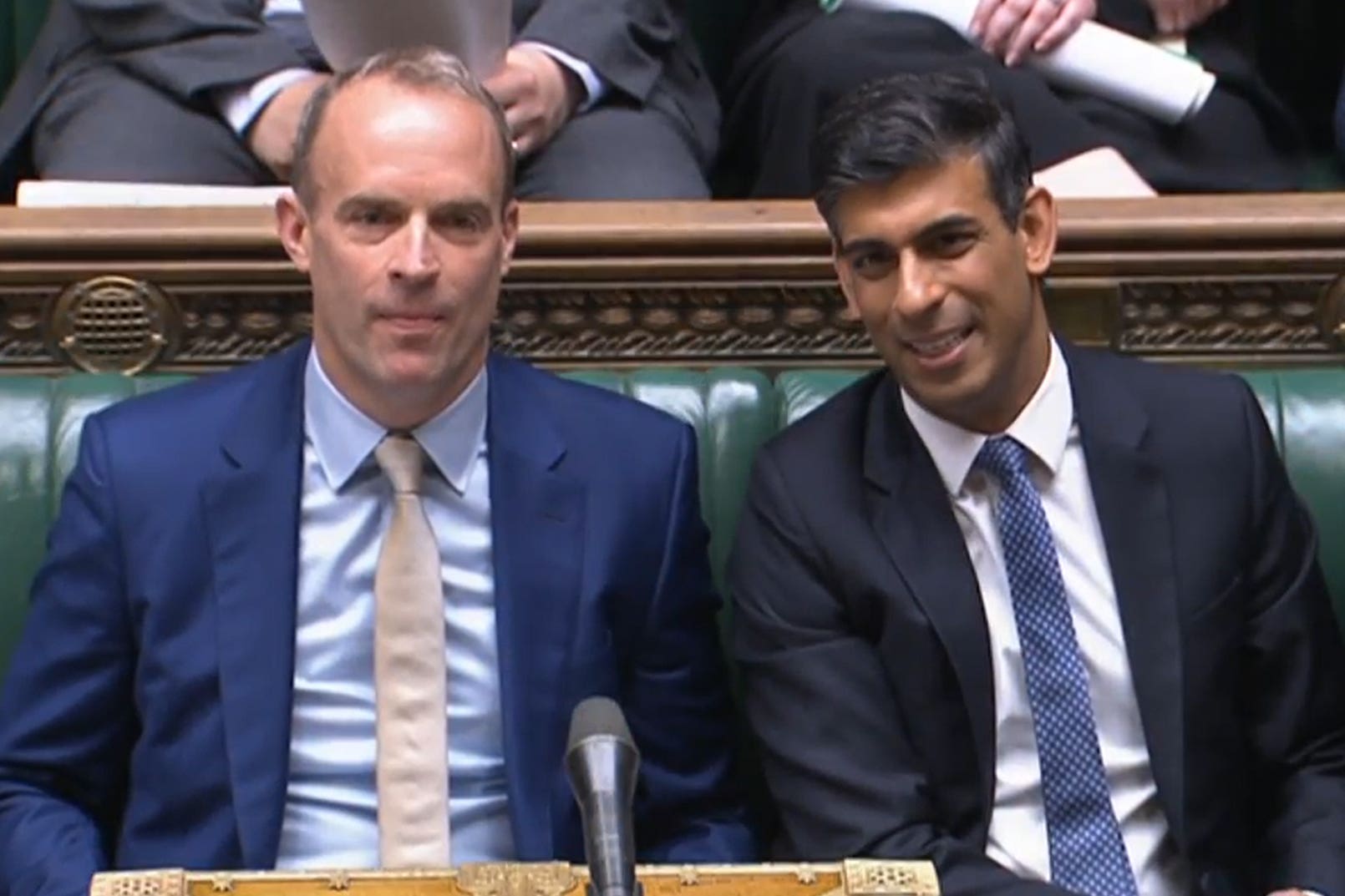Sunak urged by MPs to abandon ‘damaging’ Bill of Rights
The Joint Committee on Human rights said the legislation will undermine people’s ability to enforce their rights through the courts.

Your support helps us to tell the story
From reproductive rights to climate change to Big Tech, The Independent is on the ground when the story is developing. Whether it's investigating the financials of Elon Musk's pro-Trump PAC or producing our latest documentary, 'The A Word', which shines a light on the American women fighting for reproductive rights, we know how important it is to parse out the facts from the messaging.
At such a critical moment in US history, we need reporters on the ground. Your donation allows us to keep sending journalists to speak to both sides of the story.
The Independent is trusted by Americans across the entire political spectrum. And unlike many other quality news outlets, we choose not to lock Americans out of our reporting and analysis with paywalls. We believe quality journalism should be available to everyone, paid for by those who can afford it.
Your support makes all the difference.Rishi Sunak is facing calls to abandon the Government’s controversial attempt to overhaul human rights legislation amid a warning that it would seriously damage people’s ability to enforce their rights.
A cross-party committee of MPs and peers said the Bill of Rights showed a “disregard” for the UK’s international legal obligations and would lead to more cases going to the European Court of Human Rights in Strasbourg.
Ministers say the Bill – which would replace the Human Rights Act which enshrines the European Convention on Human Rights in UK – is intended to curb abuses of the current system.
However the parliamentary Joint Committee on Human Rights said the Bill would create new barriers which make it harder for people to enforce their rights inside and outside courts.
It will lead to an increased caseload in Strasbourg and will damage our international reputation as guardians of human rights
Rather than creating a strong new legal framework, the committee said the Bill appeared to be designed to “tip the balance” in favour of the state when facing allegations of human rights violations.
It concluded the likely result would be that more people would need to go to the court in Strasbourg to enforce their rights, and that more adverse judgments were likely to be made against the UK.
“The Government should not proceed with this Bill,” the committee said.
“It weakens rights protections, it undermines the universality of rights, it shows disregard for our international legal obligations; it creates legal uncertainty and hinders effective enforcement; it will lead to an increased caseload in Strasbourg; and will damage our international reputation as guardians of human rights.”
The Bill of Rights was originally introduced under Boris Johnson by Deputy Prime Minister and Justice Secretary Dominic Raab only to be dropped by Liz Truss when she became prime minister and summarily sacked Mr Raab.
It was revived when Mr Sunak entered No 10 and Mr Raab was reappointed to his previous role, although when he appeared before the Commons Liaison Committee last month the Prime Minister refused to commit to a parliamentary timetable to bring it into law.
In its report, the committee said there appeared to be little wider support for the proposed changes, with victims of violence against women, care home residents, and those whose family members have lost their life due to the actions of the police or other state actors among those raising objections.
It expressed concern the Bill would require courts to ignore safeguards which protect people in “urgent situations” when there is a credible risk to life or of torture or inhuman or degrading treatment.
It would also impact on the requirement on public bodies to take action to protect rights, such as conducting effective investigations into the loss of life – as in the Hillsborough inquests.
Committee chair Joanna Cherry said: “Human rights are universal. A Bill of Rights should reaffirm and reinforce the fundamental rights that protect everyone in the UK, but this Bill does nothing of the sort.
“Instead, it removes and restricts certain human rights protections that the Government finds inconvenient and prescribes a restrictive approach to the interpretation and application of the European Convention on Human Rights in the courts of our domestic legal systems.
“The end result, if the Bill is enacted in its current form, will be more barriers to enforcing human rights, more cases taken to Strasbourg and more adverse judgments against the UK.”
A Ministry of Justice spokeswoman responded: “The Bill of Rights builds on the UK’s proud tradition of liberty by strengthening freedom of speech, reinjecting a healthy dose of common sense to the system and ending abuse of our laws.
“The Government was elected on a manifesto that committed to updating the Human Rights Act to ensure there is a proper balance between the rights of individuals, our vital national security and effective government – that is what we are doing.”